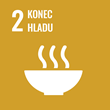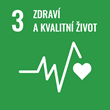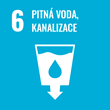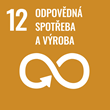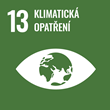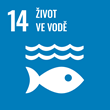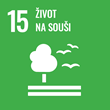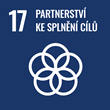Informace o projektu
Sustainable Plant Protection Transition: A Global Health Approach
(SPRINT)

- Kód projektu
- 862568
- Období řešení
- 9/2020 - 8/2025
- Investor / Programový rámec / typ projektu
-
Evropská unie
- Horizon 2020
- Food security, sustainable agriculture and forestry, marine and maritime and inland water research (Societal Challenges)
- Fakulta / Pracoviště MU
-
Přírodovědecká fakulta
- prof. RNDr. Jakub Hofman, Ph.D.
- Paula da Silva Tourinho
- Mgr. Zuzana Hochmanová, Ph.D.
- Evgenia Chaideftou
- Mgr. Halyna Korovecka, Ph.D.
- Artur Radomyski
- Shiva Sabzevari
- Spolupracující organizace
-
Univerza v Ljubljani
University of Aveiro
University of Antwerpen
Aarhus Universitet
University College Cork
Universität Bern
Radboud Universiteit Nijmegen
Universiteit Utrecht
Wageningen University
- Odpovědná osoba Prof. Violette Geissen
Ecologic Institute
Technical University of Denmark
Université de Bordeaux
Universität Hohenheim
Stichting Radboud universitair medisch centrum
SPRINT will develop, test, validate and deliver a holistic global health approach to integrated assessments of the impacts of plant protection products (PPP) on ecosystem, plant, animal and human (EPAH) health, using three main attributes for state of health: resilience, reproduction/ productivity and manifestation of diseases. SPRINT takes the main crops and cropping systems in different European landscapes into account with the aim being to develop transition pathways for reduced reliance on PPP use, and improve farmer and citizen awareness. The goal is integrated risk assessment at the local, regional, national and European level, focusing on different PPP use patterns in contrasting farming systems (conventional, integrated, organic). SPRINT consists of 9 interlinked work packages. The distribution and the impacts of PPPs on EPAH health will be evaluated at 11 case study sites (CSS), each with contrasting farming systems. Ten CSS cover Europe and leading European crops, and one additional study is in Argentina on soy production for feed. PPP environmental fluxes, direct (food/feed ingestion) and indirect (air/dust inhalation and dermal uptake) animal and human exposure routes will be measured and used to improve current exposure, fate and toxicokinetic models (e.g. EFSA-FOCUS, BROWSE, BREAM). Improved (eco)toxicological assays will be performed based on both the findings from the CCS and existing databases. Such assays will cover direct and indirect exposure to multiple PPP residues, realistic ranges of PPP concentrations, multi-species scenarios, and short- and long-term exposures. Modelling of sustainability and cost-benefit at micro- and macro-economic scale will be conducted to derive recommendations for sustainable transition pathways and a research agenda on PPPs. Stakeholders will be closely involved at all levels in the project, from the inventory phase at CSS to the cost-benefit analysis through an independently chaired project advisory group.
Cíle udržitelného rozvoje
Masarykova univerzita se hlásí k cílům udržitelného rozvoje OSN, jejichž záměrem je do roku 2030 zlepšit podmínky a kvalitu života na naší planetě.
Publikace
Počet publikací: 12
2024
-
Assessing pesticide residues occurrence and risks in water systems: A Pan-European and Argentina perspective
Water Research, rok: 2024, ročník: 254, vydání: May 2024, DOI
-
Effects of MCPA and difenoconazole on glyphosate degradation and soil microorganisms☆
Environmental Pollution, rok: 2024, ročník: 362, vydání: December 2024, DOI
-
Identifying pesticides of high concern for ecosystem, plant, animal, and human health: A comprehensive field study across Europe and Argentina
Science of the Total Environment, rok: 2024, ročník: 948, vydání: October 2024, DOI
-
Pesticide residues in European sediments: A significant concern for the aquatic systems?
Environmental Research, rok: 2024, ročník: 261, vydání: November 2024, DOI
-
Pesticide Residues in Organic and Conventional Agricultural Soils across Europe: Measured and Predicted Concentrations
ENVIRONMENTAL SCIENCE & TECHNOLOGY, rok: 2024, ročník: 58, vydání: 15, DOI
-
Selected farm-level crop protection practices in Europe and Argentina: Opportunities for moving toward sustainable use of pesticides
Journal of Cleaner Production, rok: 2024, ročník: 477, vydání: October 2024, DOI
-
Towards a comprehensive methodology for ecotoxicological assessment: Prioritizing plant protection products for mixture testing in edge-of-field surface waterbodies
Science of The Total Environment, rok: 2024, ročník: 956, vydání: December, DOI
2023
-
Occurrence of pesticide residues in indoor dust of farmworker households across Europe and Argentina
Science of the Total Environment, rok: 2023, ročník: 905, vydání: December 2023, DOI
-
Pesticide residues with hazard classifications relevant to non-target species including humans are omnipresent in the environment and farmer residences
Environment International, rok: 2023, ročník: 181, vydání: November 2023, DOI
2022
-
A worldwide review of currently used pesticides' monitoring in agricultural soils
Science of the Total Environment, rok: 2022, ročník: 812, vydání: March 2022, DOI
